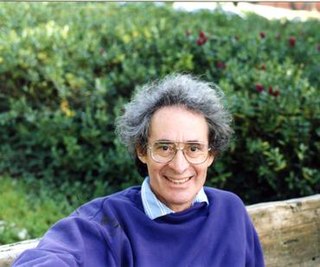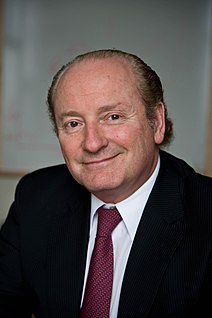A Quote by Martin Gardner
As far as I know, Clifford Pickover is the first mathematician to write a book about areas where math and theology overlap. Are there mathematical proofs of God? Who are the great mathematicians who believed in a deity? Does numerology lead anywhere when applied to sacred literature? Pickover covers these and many other off-trail topics with his usual verve, humor, and clarity. And along the way the reader will learn a great deal of serious mathematics.
Quote Topics
About
Along
Anywhere
Applied
Areas
As Far As
Believed
Book
Clarity
Covers
Deal
Deity
Does
Far
First
God
Great
Great Deal
Great Math
His
Humor
Know
Lead
Learn
Literature
Many
Math
Mathematical
Mathematical Proof
Mathematician
Mathematicians
Mathematics
Numerology
Off
Other
Overlap
Reader
Sacred
Serious
Theology
Topics
Trail
Usual
Way
Will
Write
Related Quotes
Mathematical thinking is not the same as doing mathematics - at least not as mathematics is typically presented in our school system. School math typically focuses on learning procedures to solve highly stereotyped problems. Professional mathematicians think a certain way to solve real problems, problems that can arise from the everyday world, or from science, or from within mathematics itself. The key to success in school math is to learn to think inside-the-box. In contrast, a key feature of mathematical thinking is thinking outside-the-box - a valuable ability in today's world.
It is a melancholy experience for a professional mathematician to find himself writing about mathematics. The function of a mathematician is to do something, to prove new theorems, to add to mathematics, and not to talk about what he or other mathematicians have done. Statesmen despise publicists, painters despise art-critics, and physiologists, physicists, or mathematicians have usually similar feelings: there is no scorn more profound, or on the whole more justifiable, than that of the men who make for the men who explain. Exposition, criticism, appreciation, is work for second-rate minds.
This is a wonderful book, unique and engaging. Diaconis and Graham manage to convey the awe and marvels of mathematics, and of magic tricks, especially those that depend fundamentally on mathematical ideas. They range over many delicious topics, giving us an enchanting personal view of the history and practice of magic, of mathematics, and of the fascinating connection between the two cultures. Magical Mathematics will have an utterly devoted readership.
Mathematicians are proud of the fact that, generally, they do their work with a piece of chalk and a blackboard. They value hand-done proofs above all else. A big question in mathematics today is whether or not computational proofs are legitimate. Some mathematicians won't accept computational proofs and insist that a real proof must be done by the human hand and mind, using equations.
Theater roles are written by the great masters. The greatest literature that you can possibly know are the theater roles like King Lear, Hamlet, and all of those great roles. So all you do is you dive into these unchallenged roles and see how far you can get, what kind of accolades you can get, and how good you can be in them. In movie roles, you can actually improve them by knowing a lot about your own stage technique, which helps a great deal in the cinema and how you can project inner humor even though the particular dialogue is not necessarily funny, but you can infuse it with humor.
Mathematics is not a contemplative but a creative subject; no one can draw much consolation from it when he has lost the power or the desire to create; and that is apt to happen to a mathematician rather soon. It is a pity, but in that case he does not matter a great deal anyhow, and it would be silly to bother about him.
No mathematician should ever allow him to forget that mathematics, more than any other art or science, is a young man's game. ... Galois died at twenty-one, Abel at twenty-seven, Ramanujan at thirty-three, Riemann at forty. There have been men who have done great work later; ... [but] I do not know of a single instance of a major mathematical advance initiated by a man past fifty. ... A mathematician may still be competent enough at sixty, but it is useless to expect him to have original ideas.
I don't think that everyone should become a mathematician, but I do believe that many students don't give mathematics a real chance. I did poorly in math for a couple of years in middle school; I was just not interested in thinking about it. I can see that without being excited mathematics can look pointless and cold. The beauty of mathematics only shows itself to more patient followers.
The constructs of the mathematical mind are at the same time free and necessary. The individual mathematician feels free to define his notions and set up his axioms as he pleases. But the question is will he get his fellow mathematician interested in the constructs of his imagination. We cannot help the feeling that certain mathematical structures which have evolved through the combined efforts of the mathematical community bear the stamp of a necessity not affected by the accidents of their historical birth.




































